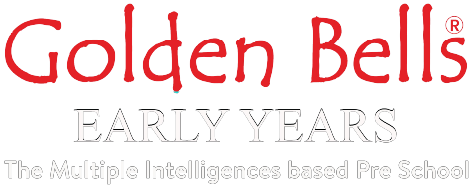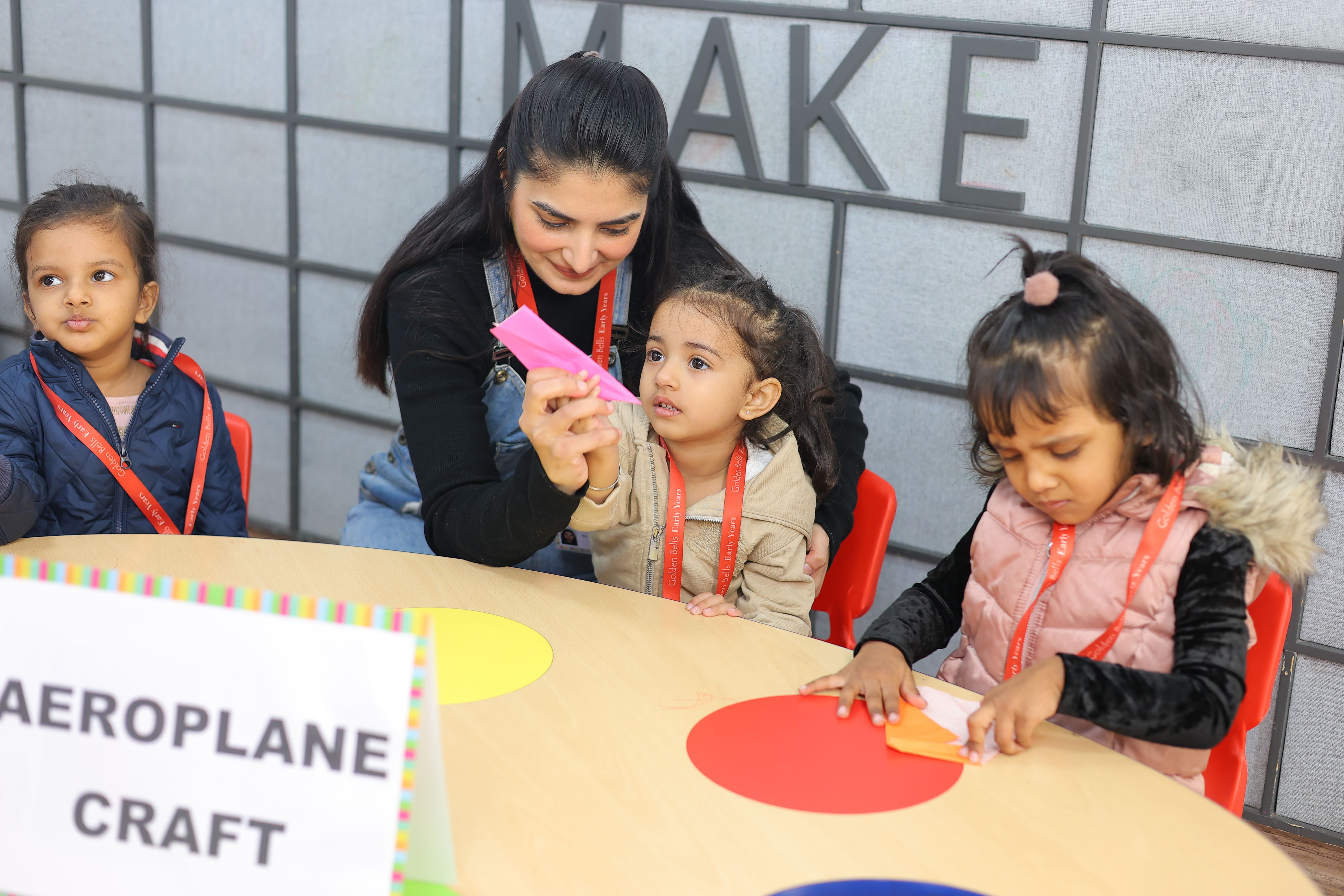The child’s ability to comprehend and absorb information begins at home, and the main medium of this information is the child’s parents. Reading and writing are future courses; first and foremost, a child starts observing their surroundings, they explore the world, become curious, and question about the various occurrences in their day-to-day life, and connect more with the world.
All this expedition requires great guidance, as this will form the foundation of a child’s future self. That is what preschool education is truly about: nurturing curiosity & creativity, and building the foundation for lifelong learning.
Today’s parents have this realisation that a preschool is more than a place where children play; it’s where they develop the skills that shape & build their future self, in all aspects like emotionally, socially, and academically.
How Preschool Differs from Kindergarten There is a constant debate among people, especially parents, about whether a preschool is the same as kindergarten. But nobody understands that they both are two different worlds. While both focus on early education, preschool is where learning begins; it’s the bridge between home and formal schooling.
There is a constant debate among people, especially parents, about whether a preschool is the same as kindergarten. But nobody understands that they both are two different worlds. While both focus on early education, preschool is where learning begins; it’s the bridge between home and formal schooling.
- Preschool (Ages 18 months-36 months): Preschools delve into play-based learning, exploring, observing, and developing social-emotional skills. Children learn through sensory activities, music, pretend play, and movement.
- Kindergarten (Ages 36 months-60 months): Kindergarten grooms children for structured academics, which includes introducing reading, writing, and early math concepts.
Hence, preschool education lays the groundwork for everything that follows. It’s where learning feels like play, but every game, song, and story has a purpose to nurture and enhance the child’s abilities.
Cognitive and Social Benefits of Preschool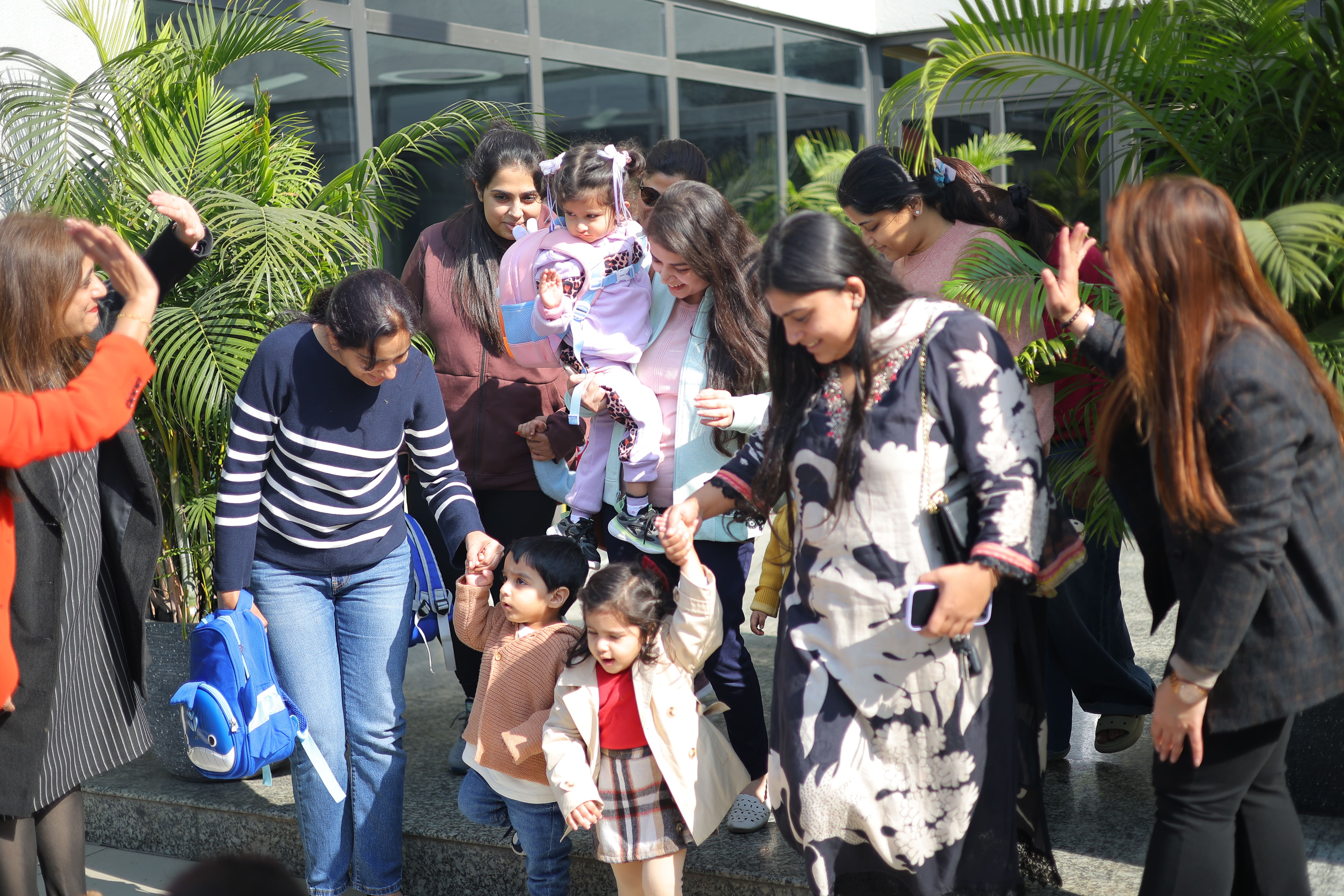
The early years of a child are the ones where 90% of brain development happens, entirely depending on the various experiences a child encounters, whether they are positive or negative, they lay the foundation of the future. Here, preschool plays a major role in shaping the development of a child, as it provides such relationships that nurture a child, making preschool a powerful opportunity for growth. The benefits of play school go far beyond the classroom:
1. Cognitive Growth
Cognitive growth is the area that is proactively focused on in traditional academic settings, but even in modern-day teaching, one cannot avoid it. Children learn to recognize patterns, solve problems, and make connections. Storytelling, puzzles, and hands-on experiments boost memory and logical thinking.
2. Language Development
Preschool education helps children understand and use commonly spoken words in everyday communication. The curriculum is thoughtfully designed to encourage them to form simple sentences, laying the groundwork for confident and fluent speech. All this is done through songs, rhymes, and conversations, further helping children express their thoughts confidently.
3. Social & Emotional Skills
A child’s temperament affects their ability to control emotions or respond to the things around them. It explains the differences in children’s personalities, behavior styles, emotional reactions, and responses that you naturally observe as an adult. Group play teaches teamwork, empathy, and patience. Children learn to share, take turns, and understand emotions, which are essential skills for every stage of life.
4. Creativity & Curiosity
When an educational approach incorporates holistic development, it brings together all the aspects of a child’s growth. There are new ways to explore and observe every day, be it art, dance, games, puzzles, or building blocks. Creativity becomes a habit, not a task.
It’s all about recognizing the range of developmental needs and addressing each area through high-quality education and care, and all this can be processed in a playschool. These play school benefits help children develop resilience and adaptability, the two key traits for success in school and beyond.
The Role of Golden Bells Early Years Preschool Programs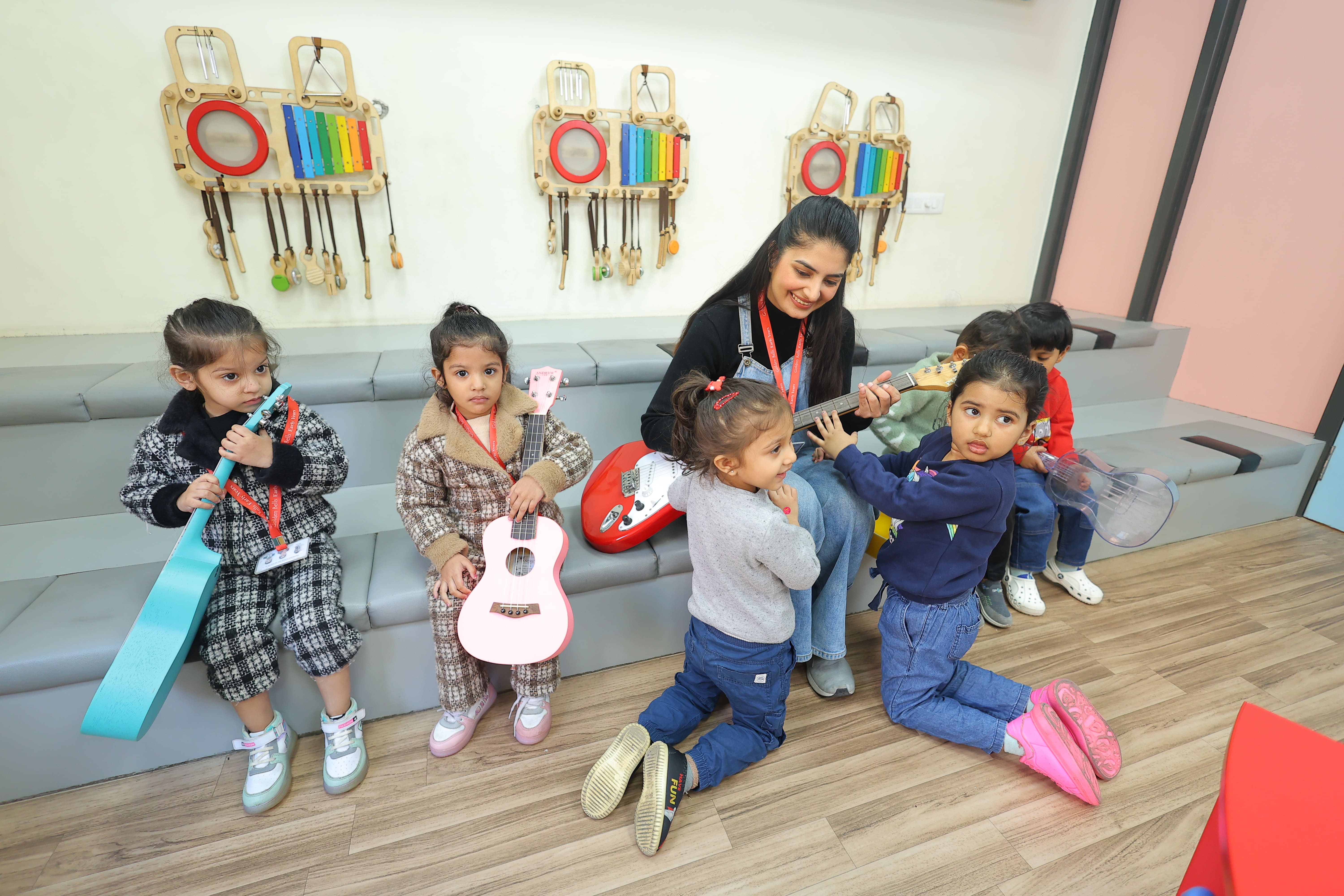 When parents search for a preschool in Delhi NCR, they look for a place that combines learning with love and with an overall development of a child, and that’s what Golden Bells Early Years stands for.
When parents search for a preschool in Delhi NCR, they look for a place that combines learning with love and with an overall development of a child, and that’s what Golden Bells Early Years stands for.
As India’s first Multiple Intelligence Preschool, Golden Bells thrives on making learning easy for every child’s requirement, as they are different. Our preschool curriculum is carefully designed to nurture and shape all dimensions of development and growth:
- Play School Program: For toddlers who are just getting introduced to the outside world, where the main focus is on sensory play, movement, basic life skills, discipline, and early communication.
- Preschool Program: For the kids who are introduced to early learning of the structured curriculum through stories, music, art, theatre, sports, nature and exploration.
Each stage ensures children move confidently from one milestone to the next. Considering the globalized context we live in, early childhood education should focus on building children’s awareness about the world, their understanding, and their ability to take an active participation in worldly affairs, enjoying every moment of their learning journey.
How to Choose the Right Preschool for Your Child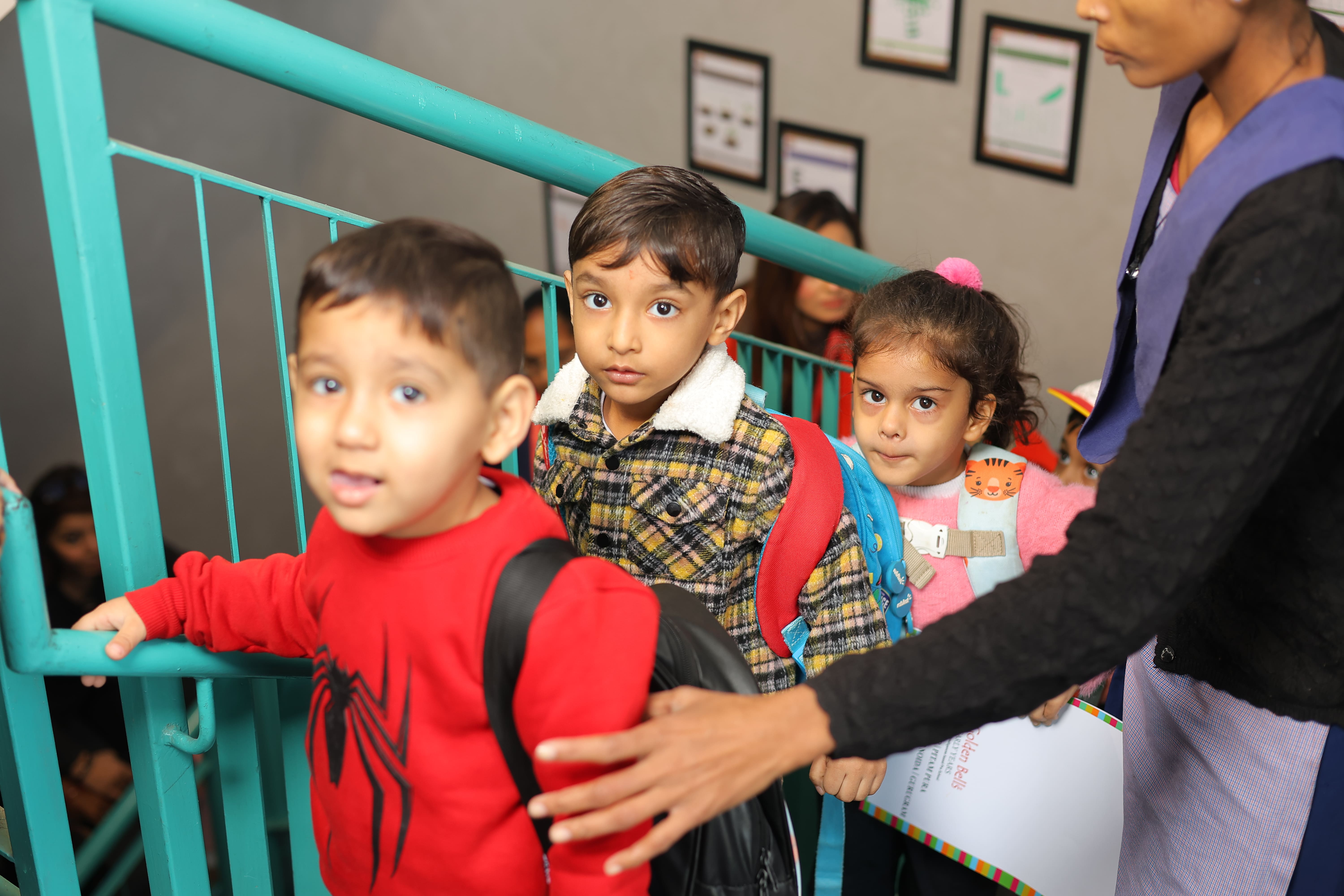
Finding the best preschool in Delhi NCR can feel overwhelming. Parents should understand the basic requirements of their child and for their child. This will help in easing their search as well as choosing the correct option. Here are a few tips to make the right choice:
- Look for Trained Educators: Teachers who are well-trained and understand a child’s psychology and early learning methods. They work as facilitators, working on a holistic approach for every child.
- Prioritize Safety & Hygiene: Infrastructure and maintaining that infrastructure is the first thing that clicks in a parent's mind before even entering the premises of a particular school, so a clean, child-friendly environment builds confidence and comfort in a child as well as in a parent.
- Observe the Learning Approach: It is very important to have a look at the kind of curriculum a particular school follows. It is crucial to learn about the way they make children learn, whether is it Play-based, focuses on multiple intelligences, and are there activity-oriented programs, and do they encourage holistic growth.
- Engage with the School: Parents' involvement in the early years is crucial, as it creates a sense of belonging in the child as well. Schools that involve parents in the learning process create a stronger foundation for both the child and the parent.
In conclusion, selecting the right school for your child involves looking beyond just academics. It means giving your child the best possible start, where learning feels natural and joyful and you can confidently make a decision that sets your child on the path to success.
